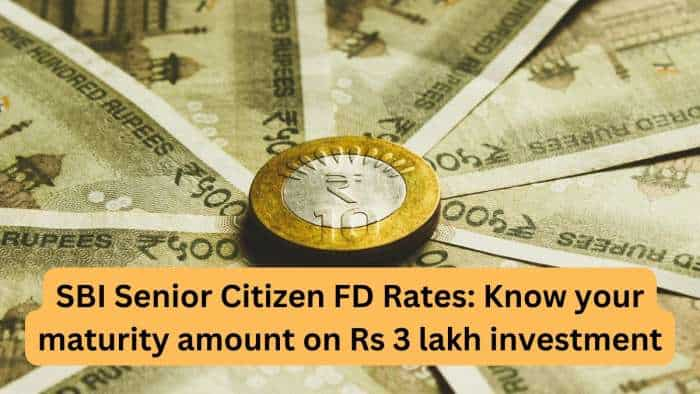What are penny stocks and 5 reasons why you shouldn't buy them - Explained
A penny stock generally trades at a very low price that is usually below Rs 10 on the exchanges due to very less demand, but due to certain events their share prices spike causing a frenzy in markets.

The stock market is known for its volatile nature and risk involved. There are a number of companies listed on both the exchanges, NSE and BSE. However, stocks of small public companies which trade at low prices are known as penny stocks. These stocks are highly speculative in nature and people gamble on these strips with huge bids. These companies have small capitalisation in the market. All in all these penny stocks can pose a high risk for investors who invest to make quick money in short periods. A penny stock generally trades at a very low price that is usually below Rs 10 on the exchanges due to very less demand, but due to certain events their share prices spike causing a frenzy in markets.
Chandan Taparia, Derivatives & Technical Analyst - Motilal Oswal told Zee Business Online, ''The penny stocks are never a good option to invest money. These shares are traded and driven largely by the speculators of market."
By their very nature they are volatile and can cause an investors money to explode in his or her face. Many investors have lost massive amounts on bets placed on penny stocks. So, here is a warning as well as 5 reasons why you should not invest in penny stocks:
1. Manipulate investors:
These shares are less likely to attract trades on the exchanges, hence can easily become a target of manipulators. Even a small buying in these scrips can boost the market price of these shares to unimaginable highs for no ostensible reason. It is very easy to effect a change in these types of shares as they trade at very cheap prices.
For example, a share with a market price of Re 1 can go to Rs 3 in no time, if even a small investment is done. A rise of 200 per cent would attract other investors to put their money with the intention of making a quick buck. However, these are are the traps to manipulate and wash out the money invested by others. As a manipulator would sell at a hovering high price leaving all others at huge losses.
2. Zero or low liquidity:
These are the small companies which attract zero or low trade volumes. Even if an investor sets a bid for sell or buy, it takes time to settle due to low volumes. This is why penny stocks are illiquid in nature, as they would not sell when required.
3. Huge risk involved:
The risk involved in a penny stock investment is huge. These shares can turn on the charts anytime. They never move parallel to major index or sectors. These scrips are highly volatile due to low trade volumes and investor interest. Even a small buying or selling could trigger huge corrections and recovery to these stocks in no time.
"Penny companies don't move as per the markets, they pose a huge risk to the investor's capital," mentioned Taparia.
Watch this Zee Business TV video:
4. Nothing to research:
Research before the investment is very important. An investor should analyse all the parameters like fundamentals, technical, financial numbers, news, management details etc. However, these are the micro capital limited companies with small businesses. Information available for investors can be manipulated or hidden. Therefore investing in these shares can be a risky option as there is no scope of research.
Taparia added, "Large cap companies have a market reputation, management quality, trust and financial stability which are not there in penny or micro cap companies."
5. Chances of insider trading:
As these companies share less or incomplete information with investors, chances of insider trading increases. The promoters or other direct investors can easily manipulate retail investors.
"These scrips are driven by speculators of the market, not recommended for retail investors, as there are other good companies where an investor can get good returns with low risk,'' explained Taparia.
Note: Investments in equity markets are risky and volatile in nature, any investment should be made with due individual discretion.
Get Latest Business News, Stock Market Updates and Videos; Check your tax outgo through Income Tax Calculator and save money through our Personal Finance coverage. Check Business Breaking News Live on Zee Business Twitter and Facebook. Subscribe on YouTube.
RECOMMENDED STORIES

Top 5 ETFs That Have Given Highest Returns in 1 Year: Rs 1,00,000 one-time investment in No. 1 ETF has grown to Rs 1,77,286

Retirement Planning: How one-time investment of Rs 11,00,000 can create a Rs 3,30,00,000 retirement corpus

Income Tax Calculations: Is your annual salary Rs 6.75 lakh, Rs 9.25 lakh, Rs 14.50 lakh, or Rs 18.50 lakh? Know how much tax you will pay in old and new tax regimes

Monthly Pension Calculations: Is your basic pension Rs 25,000, Rs 45,000, or Rs 55,000? Know what can be your total pension as per latest DR rates

SBI Senior Citizen FD Rates: Want to invest Rs 3,00,000 in SBI FD? You can get this much maturity amount in 1 year, 3 years, and 5 years

SBI 5-Year FD vs SCSS: Which investment option can offer better returns with quarterly payments on Rs 6,00,000?
06:16 PM IST









 SEBI’s Consultation Paper: New rules for unclaimed funds and securities
SEBI’s Consultation Paper: New rules for unclaimed funds and securities RBI doubles OMO purchase to Rs 40,000 crore; Bank stocks remain under pressure
RBI doubles OMO purchase to Rs 40,000 crore; Bank stocks remain under pressure Stocks to buy after Budget 2025: Top 10 stocks in focus after Sitharaman’s announcements
Stocks to buy after Budget 2025: Top 10 stocks in focus after Sitharaman’s announcements Midday Market Report: Sensex above 73,330; Nifty maintain gains as IT stocks rally
Midday Market Report: Sensex above 73,330; Nifty maintain gains as IT stocks rally GIFT Nifty futures down 150 points; markets likely to open in red amid global cues
GIFT Nifty futures down 150 points; markets likely to open in red amid global cues